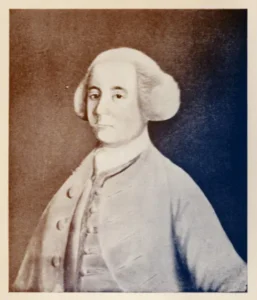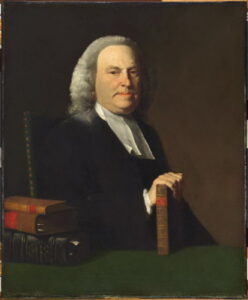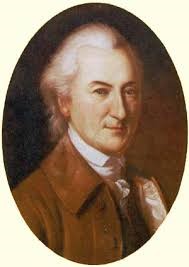Americanism Redux
October 17, your today, on the journey to the American Founding, 250 years ago, in 1774
Things are clearer in October. Crispness where haze once was. Brightness where darkness once was. A sharp aroma where heavy air once was.
Open yourself to the sights and sounds and smells of October. You might as well because they’ll find you anyway.
* * * * * * *
(Peter Frye)
The ashes are cold. With frost every night that thaws into a morning dampness, the ashes stick to your shoes. Most of the gray flecks have blown away and only a soggy charred black is left on the wood.
It’s the home and the shop of Peter Frye in Salem, colony of Massachusetts. He’s a known supporter of British imperial rights. He’s certainly not thrilled with the Coercive Acts passed by Parliament and signed by the King. Nevertheless, Frye is still willing to go further and further in trying to keep the British Empire together at the center and push colonial rights protestors to the margins. That’s what cost him.
A suspicious fire broke out at his residence and place of business. Much of what he owns is gone.
Everyone in this temporary colonial capital of Massachusetts knows the fire was a protest and a warning.
* * * * * * *
(Abigail Adams)
Abigail Adams of Braintree, south of Boston, worries about the atmosphere of war and violence covering the colony of Massachusetts. It’s unmistakable in the way people talk, the things people do, the emotions they reveal. She’s hoping, slim and slight though it is, that King George III will intervene and modify the hated Coercive Acts and restore peace.
At the same time, however, Abigail believes that the colonists have agency, that they can affect these matters and turn the darkness into light. Like many other colonial-rights supporters, Abigail now envisions a total overhaul of daily life in the course of protesting the Coercive Acts. People can start leading purer and nobler lives, casting off greed and luxury in favor of simplicity and virtue. Giving up tea was just the first of a hundred steps. Plain living will make for purposeful lives. The trial of crisis is a forge of betterment.
* * * * * * *
(they said yes to this preacher)
The people of Abigail’s Braintree join with other communities in Massachusetts in supporting the “Provincial Congress” that has started meeting in Concord. This political body is entirely new, born by colonial protestors from the British governor Thomas Gage’s refusal to allow the colony’s traditional legislature to meet. They are now convening outside of and in defiance of British imperial authority. They have begun the tentative process of taking back control of the colony’s government and governing.
Today, 250 years ago, the Provincial Congress of Massachusetts votes on two motions. The first is yes—to begin sessions with a prayer from Reverend Nathaniel Appleton. The second is no—to reject a call for the political body to move their meetings to the new chapel in Concord. To the majority of the Provincial Congress, spiritual words are acceptable for their meetings but spiritual surroundings are not.
* * * * * * *
(Benjamin, left and William, right)
In the colony of New Jersey, the existing legislature still functions. Members of the legislature have voted to set aside money for the annual salaries of two Franklins, younger and elder, the out-of-wedlock son and the adulterous father, William and Benjamin. William Franklin now has money for his annual salary as the colony’s imperial governor. Benjamin Franklin now has money for his annual salary as the colony’s chief agent, or imperial lobbyist in England. The two Franklins are on opposite shores of the Atlantic and opposite sides of the imperial-colonial crisis.
Samuel Allinson is in Burlington, New Jersey with a burning passion in his mind. He’s outraged about a particular aspect of the current crisis and he’s trying to identify someone of importance and influence with whom he can share his frustrations. He writes, “Ca we say, that a limited Slavery is injurious and disagreeable to ourselves, & by our practice declare, that absolute Slavery is not unjust to a race of fellow Men because they are black?”
Scribbling furiously, Allinson finishes his letter. On the envelope he will write “To Patrick Henry, Virginia delegate, the Congress at Carpenters’ Hall in Philadelphia”.
* * * * * * *
(heads turned when he walked into Carpenters’ Hall)
At that same special Congress now meeting in Philadelphia for its sixth week, one of the most famous and politically powerful delegates has arrived. He’s John Dickinson, of the Pennsylvania delegation, the leading public writer and thinker of colonial rights since the mid-1760s. Dickinson is also one of the wealthiest people living in the colonies. His ideas and decisions will carry extraordinary weight in the work of the Congress. He is a prominent believer in the effectiveness of economic boycotts as a tool in promoting change and modifications within the British Empire.
Nevertheless, progress in Carpenters’ Hall is elusive.
During the last few days the delegates at Congress are in a deadlock on whether Parliament has the authority to regulate colonial trade: five colonies vote “yes”; five colonies vote “no”; and two colonies (Massachusetts and Rhode Island) are split and unable to vote either “yes” or “no”.
They’re stuck.
* * * * * * *
It’s the blue daylight skies and the sparkling starry nights of October.
Also
(Dartmouth)
Secretary of State for the American Colonies, Lord Dartmouth, is in London, England reviewing recent letters sent to him by General Thomas Gage, the new British imperial governor of Massachusetts. Gage has requested more military manpower to better cope with an uprising of bitterness and hatred over the Coercive Acts.
Dartmouth has already read these letters. A careful, thoughtful man, he re-reads them now before responding today, 250 years ago.
His words to Gage will be brutal.
The general’s call for more Redcoats, Dartmouth states, is “very embarrassing.”
(To the reader in 2024, let’s you and I take a huge leap and say that means “no”.)
* * * * * * *
(Raghunath Rao)
Raghunath Rao is 40-years old and living in the north of India. His five-month reign as the 11th Peshwa (a ceremonial leader) of the 90-tribe Maratha Confederacy ended earlier this year. He had ordered the murder of his nephew in seizing the position of Peshwa but couldn’t hold off his own Native enemies and rivals to keep the post. Today, 250 years ago, Raghunath mulls his next move in regaining power. He knows that the British East India Company in the Bengal region has a formidable army at its disposal. He might align with them in fighting against the Maratha Confederacy.
The British exert widespread influence across eastern India, but they can be used by Raghunath and Natives like him for their own purposes.
For You Now
(into the arena)
It’s all of life by this point. Abigail Adams is showing you that the colonial-rights movement has expanded into all of life. Indeed, it can make your life better by stripping down the materialism of day-to-day living. Sacrifice will enrich, self-denial will empower. She’s far from alone in believing this is the core of the colonial-rights cause. We’ll stop our oppressors from hurting us while we’re helping ourselves become better people. Abigail Adams and many people like her are daily engaged in watching the indicators of public goodness.
Her outlook brings two stark points into view. First, when it comes to various aspects of your life, how far is far? Is it literally everything about your life that needs to change? Samuel Allinson would say that a change of enslavement has to be part of it, too. Second, is giving something up the only way to respond? Or can lashing out and striking back be considered part of the protest and resistance? Certainly, we know how the people who started the fire at Peter Frye’s house would answer that question.
Is a third way possible? Maybe you can pursue virtue through sacrifice as a way of offsetting your own allowance of violence. We’ll be better people and thus that much more capable of ceasing violence when called upon or narrowing violence at the right time.
When all of life enters the arena, the rules become hard to know and quick to change.
Suggestion
Take a moment to consider: in our current political and governmental condition, how much of your total life is affected by public events?
(Your River)

















